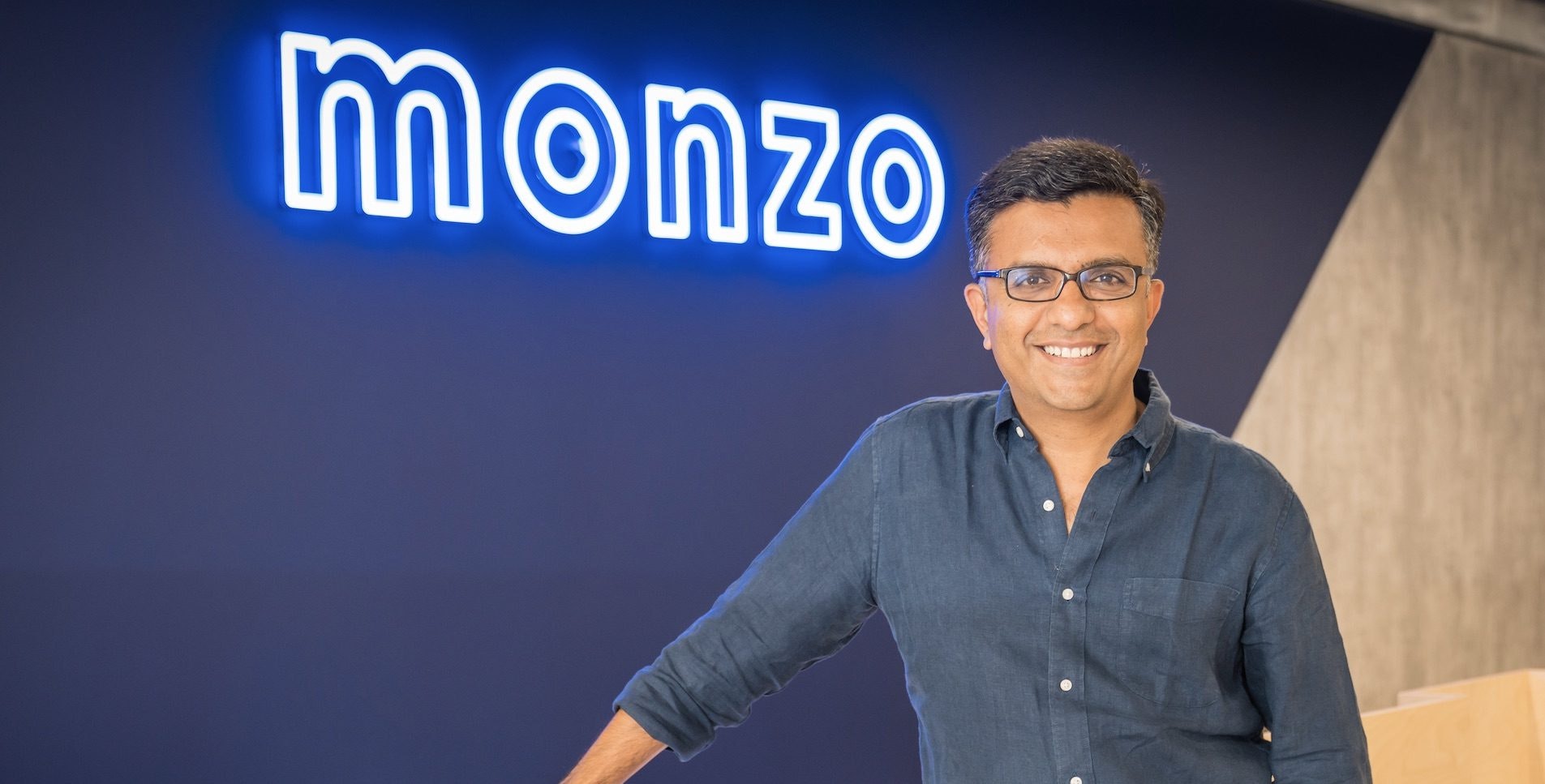When Hugo Sallé de Chou and Constantin Wolfrom founded Pumpkin in 2014, their dream was to be Europe’s answer to Venmo, the American mobile payment service that was acquired by PayPal for $800m in 2013.
De Chou had just returned to Paris from an internship in the US and was frustrated that mobile payments, so advanced over the Atlantic, were not an option in France. He and Wolfrom, who met at EDHEC Business School in Paris, decided to make mobile payments work at home.
If they’d been a little more experienced, de Chou tells Sifted a decade on, the pair would have realised that the French Venmo already existed: it was called Lydia, but they went ahead anyway, honing in on French university campuses with a product aimed at 18 to 30-year-olds.
It grew fast, but by 2017, fintech was a crowded space. Revolut had raised $66m, N26 $33m, and Lydia had just raised a €7.1m Series B. Pumpkin had last raised in 2016 (a €1.4m Series A) from investors including Kima Ventures, and needed to raise again. At the same time, at least three mainstream French banks had been banging on its door, looking for an acquisition.
“We had two options: try to raise, and risk losing the company if we can’t. Or sell,” De Chou recalls. “We built Pumpkin to sell it. We weren’t creating a business to pass on to our children.”
Over a decade since neobanks hit the mainstream, the relationship between banks and fintech remains complicated. In that time, Monzo, N26 and Revolut have become household names — and raised billions of euros — but have not posed a genuine threat to Europe’s well-capitalised, storied high street banks.
“In 2007, four big banks had around 81% of the retail banking market. Now the same four banks have 79%. So has it really changed? No,” says Hyder Jumabhoy, corporation partner in London and head of EMEA Financial Services M&A at White & Case. “Are fintechs eating the lunch of the big banks? Doesn’t seem so.”
It is unlikely that they ever will. Apart from UK neobank Starling, none of the neobanks have made any real inroads into the products that actually make banks money — large-scale lending and mortgages, for example. Revolut may have achieved profitability (of sorts), but if banks are the English Premier League, neobanks are still hashing it out in the Bristol Street Motors Trophy. If legacy banks want either the teams or the tech of a fintech startup, they use M&A.
Minimal M&A
Unlike Big Tech, for which acquisition has been a key part of growth (Microsoft’s acquisition of LinkedIn for $26bn in 2016 or Facebook’s acquisition of WhatsApp for $21.8bn in 2014), banks have rarely sought to buy their neobank rivals outright. Instead, banks have learned from and imitated the innovation that has made neobanks so popular.
“If you compare it to how successfully Big Tech has built M&A as a core part of their business, we are light years away from that,” says Remus Brett, general partner at VC firm LocalGlobe, which was an early investor in money transfer unicorn Wise and personal finance app Cleo.
Where M&A has been pursued by mainstream banks, it has been strategic — and relatively small scale. In June 2023, NatWest acquired workplace and pensions fintech Cushon for £144m. In February 2023, Lloyds acquired electric car leasing company Tusker for £300m. In 2022, BNP Paribas acquired currency risk management startup Kantox for €120m.
“We’re not hearing any of the big corporates — bank or otherwise — talking about doing transformative M&A, north of a billion or $500m,” said Alston Zecha, partner at Eight Roads.
In many cases, says Zecha, banks are focused on buying teams (“acqui-hires”) or a specific bit of tech, in deals worth around $10m or $20m. An example could be Lloyds’ £10m investment into digital identity company Yoti, in 2023. Many are even smaller and involve banks taking equity stakes in startups: of eight deals made by Lloyds involving fintech startups in 2023, five were worth less than £5m.
Eight of Europe’s biggest retail banks, BNP Paribas, NatWest, Société Générale, Barclays, Santander, HSBC, Lloyds and Standard Chartered, were involved in 23 funding rounds in 2023, according to Dealroom data.
This is likely to increase in 2024 as valuations drop off, fintech startups get increasingly desperate to raise money, and well-capitalised banks look for bargains. It also comes as Big Tech companies including X, which is launching peer-to-peer payments, and Apple, which is offering buy now, pay later, eye the lucrative financial services market.
“Tech companies are desperately trying to get into technology-driven financial services, which leaves the incumbent banks with a dilemma: how do you compete against a trillion-dollar balance sheet? How do you invest in R&D to keep relevant?” says White & Case’s Jumabhoy.
One solution is through tie-ups with banks from other regions: a German, Canadian and British bank will pool their resources and take stakes in a fintech to develop the tech and then license it back into their geos. One example is CIBC (Canada), NatWest (UK) and National Australia Bank’s investment into merchant acquisition startup Pollinate in 2022.
Another trend is investors, VCs and private equity funds urging portfolio companies that are approaching a cash crunch to merge. “They’re saying: ‘Your business models are very similar: why don’t you tie up? It can be structured as a share-for-share transaction, with minimal additional cash ask. We are seeing a lot of that,” says Jumabhoy.
Quids in?
So could an uptick in bank acquisitions of fintechs in 2024 be a good thing for VCs, hungrier than ever for exits? Not exactly, says Eight Roads’ Zecha. His fund was an investor in Compte-Nickel when it was sold to BNP Paribas in 2017 for €260m.
“We thought there was more runway and it could’ve done better, frankly,” he recalls. “Acquisitions in the single digit millions is never a good result for any VC, or even a seed or angel investor. Something in the tens of millions isn’t either.”
More recent acquisitions have been underwhelming in terms of returns. NatWest’s acquisition of Cushon resulted in a 2.1x return for investors, although it came within three years, a 66% IRR (internal rate of return), says Zecha.
“2.1x, for a VC, is at the lower end of mediocre. But the founders wanted it and it was right for the business, and the fund can put that money to work elsewhere. It would not be something that you go bragging to your mates about, but equally if it is good for all the stakeholders, then of course you’re going to do it,” says Zecha.
And what about founders? Is an acquisition by an incumbent bank something to aim for?
“I would say: ‘hell yes’,” says White & Case’s Jumabhoy.
“In this market, banks actually have the firepower to put proper valuations on the table. It’s not the case that you go into a large banking group and they don’t understand innovation and they’re going to upset your business model, that was the story of six, seven, eight years ago. It is definitely not true today.”
His White & Case colleague, Guy Potel, corporate partner in London and global head of fintech, is keen to put a counterpoint across. There are a lot of benefits for a fintech to having a minority investment from or being acquired by a bank, not least the expertise, regulatory discipline and market access that typically comes with it, and the credibility that comes with having a big name on your cap table. But the world of banking is a very different beast and being owned or controlled by a bank can bring a clash of cultures.
“I think founders of technology startups that have sat outside a regulated perimeter underestimate the challenges of coming within it. Founders should be very wary of taking a long-term plan under which they sit under the umbrella of a bank. They may well feel suffocated,” Potel says.
“If you want a full exit, to take your money and run to the hills, the bank will pay you a fair dollar for your startup. But, as a founder and CEO, you may or may not be part of their future plans. If you want to continue your journey, keep control and flexibility and grow your own product and business, then you should try to stay bank agnostic over time. Raise capital, keep a diverse shareholder base and hold out for when you can IPO.”
People problems
One of the major issues with bank fintech M&A, says LocalGlobe’s Brett, is that banks struggle to integrate teams post-acquisition, and as a result, incomers often only last as long as their earnouts.
“You have to create a place where the founding teams want to stay. You need to figure out how to do that and how to do the human side of integration well, to create an environment where people want to stay beyond the pay cheque,” he says.
Another problem in European banking is executive churn, says Brett.
“If you look at the big UK banks, the level of churn at C-suite is so high, as is the probability that you lose the CEO or board member that has put their neck on the line to acquire you.”
It’s a sentiment that resonates with Pumpkin’s de Chou.
Pumpkin was acquired in 2017 by Crédit Mutuel Arkéa, at the time being run by CEO Ronan Le Moal. A self-confessed fintech zealot, Le Moal had spearheaded the acquisition of payments startup Mangopay and crowdfunding platform Leetchi in 2015. With Le Moal at the helm and money running out, it seemed like a no-brainer.
“They were genuine in their vision: to build a French fintech ecosystem. We believed they understood that we were very immature as a business, that we would need time and money to keep developing — this was really important to us,” he says. “So we went for it.”
But in 2020, after a decade at the top of Crédit Mutuel, their patron, Le Moal, departed. After Le Moal’s exit, most of his allies either left or were sidelined, de Chou recalls, and suddenly Pumpkin found itself adrift within a banking behemoth.
Within two years, de Chou and Wolfrom were gone, and Crédit Mutuel wound down Pumpkin completely. It was a lesson, he says, in how the wind can change.
“One day you’re at the centre of the strategy, the next you’re the opposite and they want to get rid of you. I mean, they lost €60 or €70m [with Pumpkin] and they don’t care.”
Nowadays, de Chou is building a stable coin startup and enjoying the freedom of being outside the banking world. Unlike fintech, de Chou says, Web3 is ripe for disruption, an area that banks are so far unwilling or unable to break into.
“You can’t disrupt the banking industry as a fintech, because you are within it.”
So would he do it again?
“I created this company right out of school, and it was an adventure. If we hadn't sold then maybe we would have had a destiny closer than Lydia, or maybe we would have had to close down the company,” he says.
“I think I would do exactly the same with the information I had back then.”


